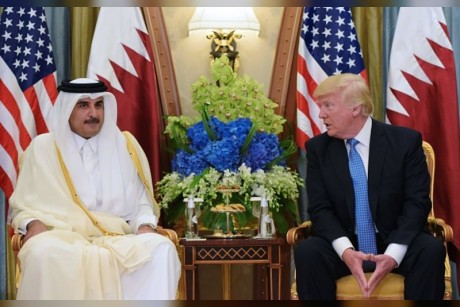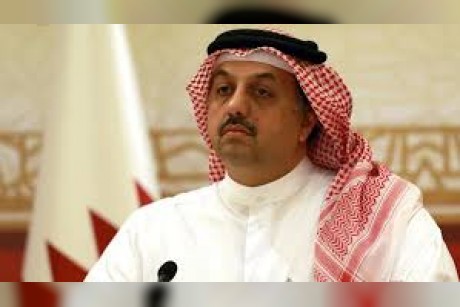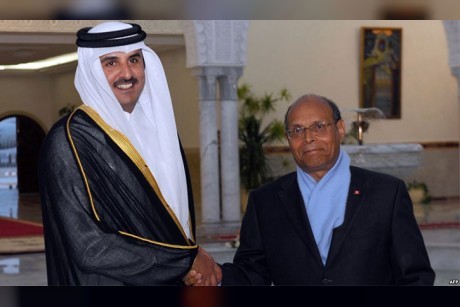Last June, a quartet of staunch U.S. allies in the Middle East — Saudi Arabia, the United Arab Emirates, Egypt and Bahrain — launched a boycott of another key U.S. partner, Qatar. President Donald Trump rushed to take the Saudi side with a tweet accusing Qatar of supporting terrorists, before eventually reversing course and positioning himself as a peacemaker.
Bloomberg reported.
The clumsy diplomatic balancing act is unlikely to succeed because it ignores what's really going on: nothing less than a struggle to reshape mainstream Arab political culture, especially regarding Islamist movements like the Muslim Brotherhood.
All five countries oppose ultra-terrorist groups like al-Qaeda and Islamic State, which seek the destruction of existing Arab and Islamic states.
But that's not the case when it comes to a network of less extreme groups affiliated with the Muslim Brotherhood. These organizations seek to take over, not immediately obliterate, the governing institutions of existing countries. Their revolutionary strategies are essentially Leninist, operating simultaneously above and below legal ground, and generally preferring mass political mobilization over terrorism that can alienate majorities.
Qatar supports Brotherhood groups throughout the region with money and advocacy by its vast media arsenal, which includes Al Jazeera television. Qataris argue that these are not only legitimate political parties but an indispensable alternative to radicalism, since without supposedly "moderate" Islamist groups like the Brotherhood, religious conservatives are more likely to be drawn into the orbit of violent extremists.
The Saudi-led quartet rejects this. To the contrary, they argue, these so-called "moderates" don't present an acceptable alternative to radicalism but rather pull politically-oriented fundamentalists down a path toward extremism.
The Muslim Brotherhood, they argue, shares key assumptions and long-term ambitions with overtly terrorist groups, including the goal of re-establishing a caliphate. This view holds that Brotherhood ideology is a crucial source of the logic and substance of terrorist creeds, and thus is a cause of deadly political cancer. The quartet accuses Qatar and Turkey of leading a Sunni Islamist camp that competes with both the Arab mainstream and Iran's Shiite alliance.
Qatar couches its support of Islamists in terms of liberal values such as democracy and free speech, which it makes no pretense of practicing at home. Moreover, Qatar's monarchy doesn't embrace an Islamist ideology for itself. And its media also promote secular, revolutionary and typically leftist pan-Arab nationalism.



